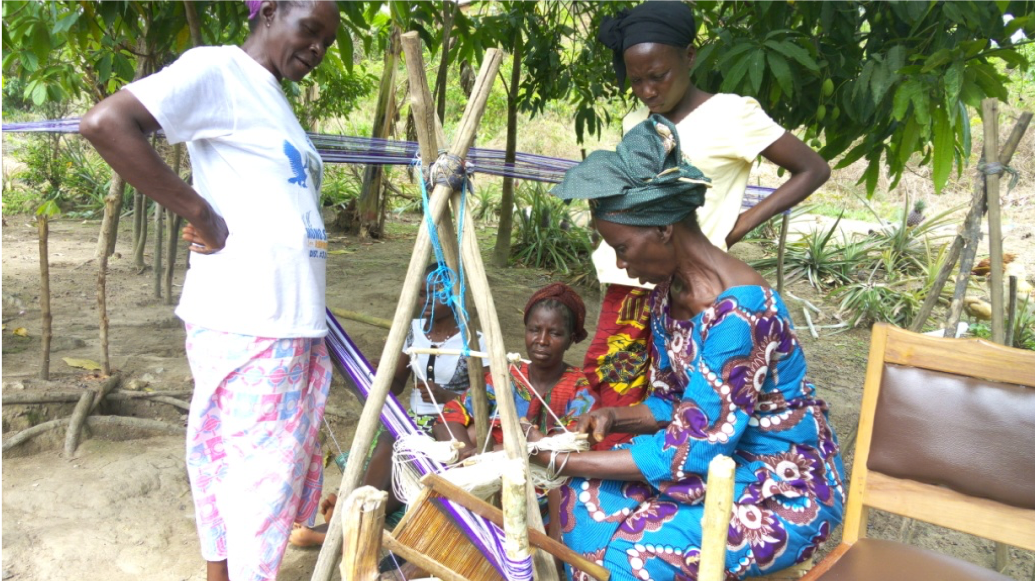
Mission
RESTORE HOPE: LIBERIA (RHL) provides essential support to vulnerable children and their caregivers, with timely and sustainable resources and activities that will protect their health and well-being, ensure access to education, and provide economic opportunities beyond school, thus providing a way out of extreme and enduring poverty.
Life Challenges of the Women Served
In Liberia, a debilitating mental health crisis persists in a context of extreme poverty. Fourteen years of brutal civil war, the largest Ebola epidemic in human history, and pervasive gender-based violence have resulted in widespread trauma. Women and girls have suffered the worst.
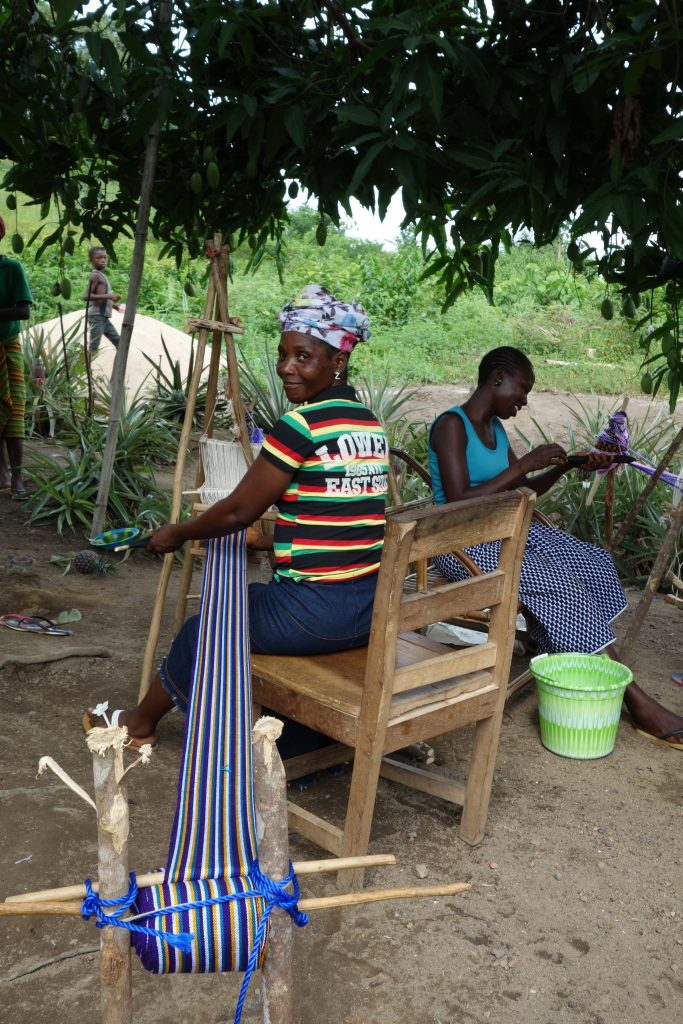 The legacy of the civil war (1989-2003) has been devastating. Rape was used as a weapon of war; women and girls were often abducted and forced into sexual slavery. According to the United Nations, almost everyone experienced or witnessed atrocities during the war, including murder, rape, and physical abuse. Sexual violence, rape, and atrocities during the post-war period have reportedly been rampant, fueled by a culture of misogyny.
The legacy of the civil war (1989-2003) has been devastating. Rape was used as a weapon of war; women and girls were often abducted and forced into sexual slavery. According to the United Nations, almost everyone experienced or witnessed atrocities during the war, including murder, rape, and physical abuse. Sexual violence, rape, and atrocities during the post-war period have reportedly been rampant, fueled by a culture of misogyny.
A decade after the civil war, Ebola ravaged the same communities, taking 5,000 lives. Ebola had a catastrophic impact on healthcare, education, and the economy, and the experience of survivors was no less traumatic than the war.
Poverty is a prevailing issue. According to the World Bank in 2015, 88 percent of Liberians were living on less than $1.25 a day. With few economic opportunities, the prospect of women’s empowerment is poor at best; and without the power of the purse, Liberian women are at greater risk of gender-based violence and human trafficking.
More than 40 percent of Liberians suffer from post-traumatic stress and/or a major depressive disorder. Yet fewer than 1 percent of Liberians have access to mental health services. The burden of mental health disorders is robbing women and girls of life and creating even greater, ongoing vulnerabilities. Severe, pervasive mental illness also is preventing fulfillment of even small gains in women’s economic and social empowerment.
In Kolahun, where this project will take place, RHL finds women who suffer debilitating trauma or mental illness. They suffer, their children suffer, and the household suffers. This morbidity is exacerbated by extreme gender inequality in a hypermasculine societal hierarchy, which inhibits women’s agency and leadership, stifles their confidence and self-worth, and leaves them with little to no decision-making power.
The Project
RHL will holistically address the three main drivers of poverty through this project by providing access to healthcare, education, and economic development (through opportunity and entrepreneurial skills).
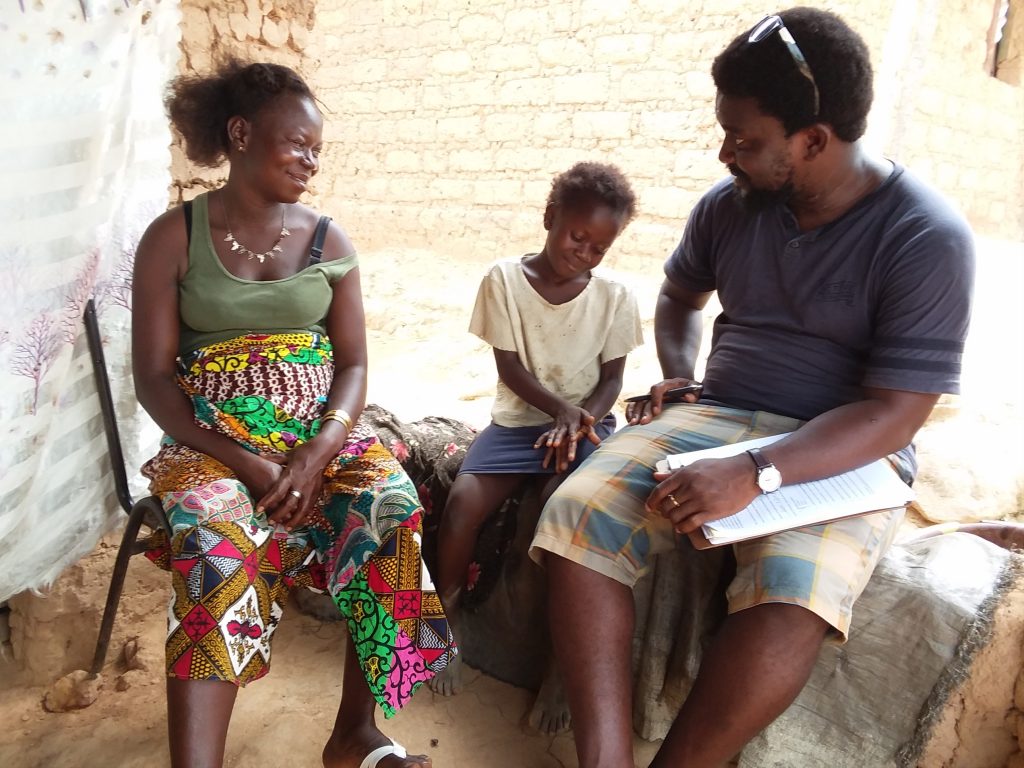 The core of RHL’s Health Program is home visits, during which a Liberian registered nurse (a RHL staff member) monitors each child’s health, including an assessment of the social determinants affecting their health status, provides health messaging and psychosocial support, and coordinates with the local hospital to provide further clinical care. The health program relies on and provides support to the local District hospital, a referral hospital, by coordinating care and providing emergency supplies (diesel fuel and essential medicines) when required.
The core of RHL’s Health Program is home visits, during which a Liberian registered nurse (a RHL staff member) monitors each child’s health, including an assessment of the social determinants affecting their health status, provides health messaging and psychosocial support, and coordinates with the local hospital to provide further clinical care. The health program relies on and provides support to the local District hospital, a referral hospital, by coordinating care and providing emergency supplies (diesel fuel and essential medicines) when required.
RHL will incorporate Interpersonal Group Therapy (IPT) for depressive disorders into the program. For this project they will hire a Mental Health Psychosocial Manager and IPT trainers to come to Kolahun to train 10 facilitators each year. The target is 80 percent success with the training, giving RHL eight facilitators in Year 1 and 16 facilitators in Year 2. The training will be for approximately two weeks.
After the facilitators are trained, the standard instrument for identifying individuals with a depressive disorder (PHQ-9) will be used to evaluate all consenting participants. Baseline measures of key social and economic empowerment indicators, across five domains, will be done, using both quantitative and qualitative measures. All participating women and girls (with caregiver consent) will then be offered the opportunity to participate in the standard eight-week IPT group process. At the end of the eight weeks, all participants will take the PHQ-9 again to determine improvement. Facilitators will continue weekly IPT sessions with participants, and assessment will continue intermittently. Throughout the year, new participants will be given the same assessment prior to and after completion of the sessions.
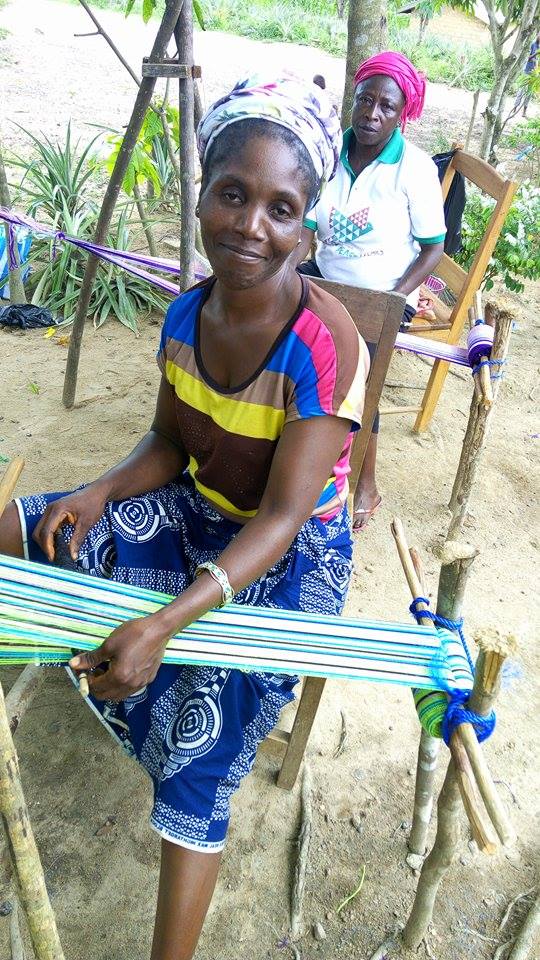 RHL’s Education Program enrolls children in school, paying their school fees, and providing uniforms and supplies. RHL’s staff follows their academic and behavioral progress through regular meetings with school administrators, teachers, and parents/caregivers. Children supported by RHL attend schools throughout the District, and RHL works closely with the District Education Officer. RHL provides afterschool tutoring four days per week. Six RHL tutors have been trained in phonics, and they structure the lessons to focus on reading skills. Students graduating from high school can apply for scholarships to attend the local community college or vocational school. For every year a student receives an RHL scholarship, he or she commits to returning to Kolahun to work in his or her field of study. The Education Program includes an adult literacy class as well, convening twice a week to provide the caregivers and guardians of the enrolled children with an educational opportunity.
RHL’s Education Program enrolls children in school, paying their school fees, and providing uniforms and supplies. RHL’s staff follows their academic and behavioral progress through regular meetings with school administrators, teachers, and parents/caregivers. Children supported by RHL attend schools throughout the District, and RHL works closely with the District Education Officer. RHL provides afterschool tutoring four days per week. Six RHL tutors have been trained in phonics, and they structure the lessons to focus on reading skills. Students graduating from high school can apply for scholarships to attend the local community college or vocational school. For every year a student receives an RHL scholarship, he or she commits to returning to Kolahun to work in his or her field of study. The Education Program includes an adult literacy class as well, convening twice a week to provide the caregivers and guardians of the enrolled children with an educational opportunity.
The Economic Development component of RHL was started by women who attend the adult literacy classes. In 2017, these entrepreneurs, with RHL support, created the Women’s Weaving Cooperative (WWC) as a way to earn money, improve their lives, and keep a traditional Liberian craft alive. The WWC meets together twice each week to weave and instruct the apprentices, who complete a six-month apprenticeship before joining as members, at which point they can opt to take out a microloan to set up their own cottage weaving business. As members of the co-op, they can take advantage of group purchasing power and preferred prices for weaving supplies, and new markets for selling their Country Cloth. The WWC is currently training its third cohort of apprentices.
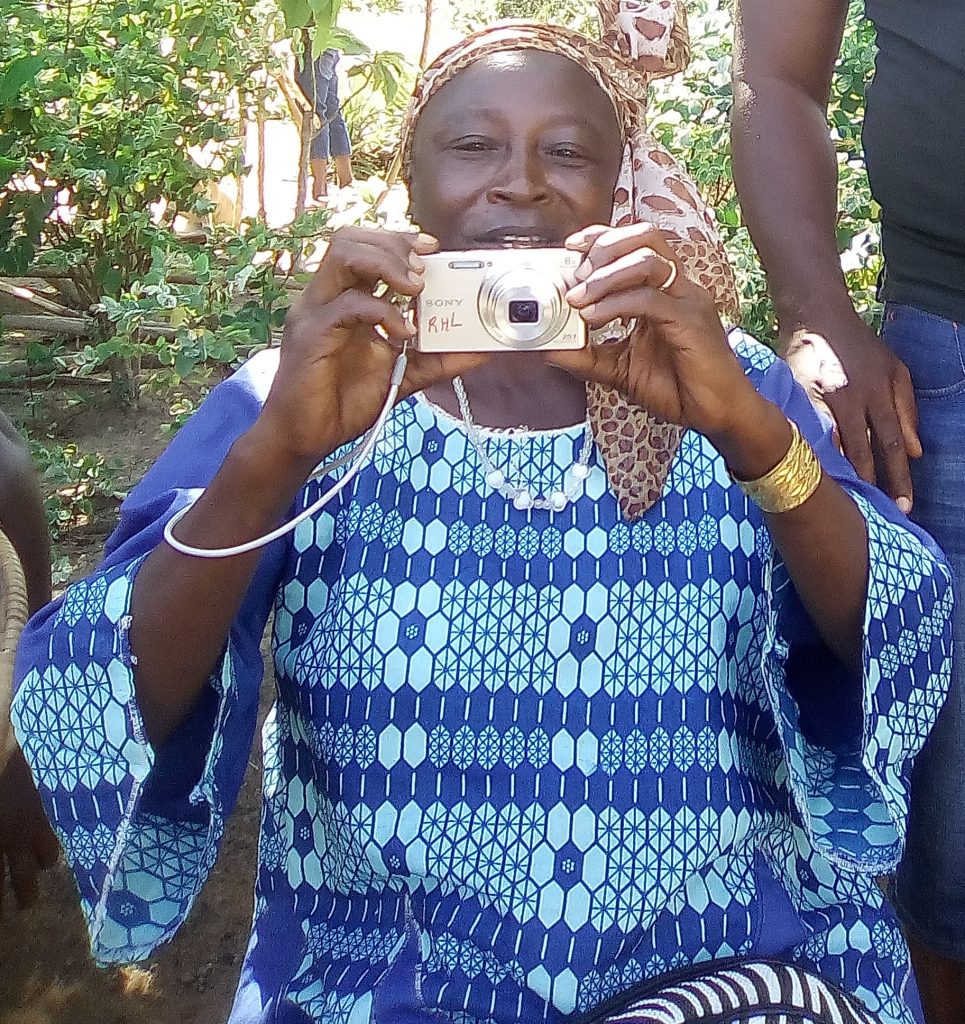 An additional aspect of RHL, relevant to this project, is Kolahun Crescendo (KC), a photo-storytelling project. KC was first organized in Kolahun in 2007, pre-dating RHL. The originator and implementer of the project, Ann Jones, began this women’s self-help empowerment program as “Global Crescendo” in many countries, under the auspices of the International Rescue Committee. Ms. Jones consulted with RHL to help restart the local initiative in Kolahun in 2018. KC is a group of women and girls who are interested in keeping photographic records of their lives and coming together to share those with each another and with leaders in the community. The program serves as both art therapy and as a means of skills-building in advocacy, giving the women the opportunity to describe their circumstances, challenges, and needs in the context of community. KC provides a way for women and girls to reflect, to build confidence, and to extend the circle of community and support.
An additional aspect of RHL, relevant to this project, is Kolahun Crescendo (KC), a photo-storytelling project. KC was first organized in Kolahun in 2007, pre-dating RHL. The originator and implementer of the project, Ann Jones, began this women’s self-help empowerment program as “Global Crescendo” in many countries, under the auspices of the International Rescue Committee. Ms. Jones consulted with RHL to help restart the local initiative in Kolahun in 2018. KC is a group of women and girls who are interested in keeping photographic records of their lives and coming together to share those with each another and with leaders in the community. The program serves as both art therapy and as a means of skills-building in advocacy, giving the women the opportunity to describe their circumstances, challenges, and needs in the context of community. KC provides a way for women and girls to reflect, to build confidence, and to extend the circle of community and support.
The goals of RHL are as follows:
- – Improve women and girls’ mental health and wellbeing through the integration of a proven, community-based mental health intervention, Interpersonal Group Therapy, with existing women’s economic and social empowerment initiatives, the Women’s Weaving Cooperative and Kolahun Crescendo. This integrated approach provides a sustainable and scalable program for on-going mental health support while advancing women’s economic and social empowerment.
- – Help the Women’s Weaving Cooperative become a self-sustaining, expanding program in which the various domains of women’s economic empowerment (agency, voice and leadership, mental wellbeing) are woven into the cooperative’s culture.
- – Support the Kolahun Crescendo, which addresses several necessary domains of women’s empowerment through art (photo) therapy and storytelling, ensuring access to the resources women need to succeed.
Impact: Year 1- Direct: 94, Indirect: 360; Year 2- Direct: 260, Indirect: 1,040
UN Sustainable Development Goals
![]()
![]()
![]()
![]()
Questions for Discussion
- Why do you think this project is sustainable?
- How do you think this project can affect gender inequality in Liberia?
- Why do you think RHL’s holistic focus works?
How the Grant Will be Used
NOTE: During these unprecedented times of COVID-19, Dining for Women has adapted grant funding and offered flexibility to grantees in the timeline, budgets and execution of their projects. These adjustments will be reported in the grantee reports. As of July 2020, RHL has not made any adjustments to the original project or budget.
DFW’s grant of $50,000 over two years will be used for the following:
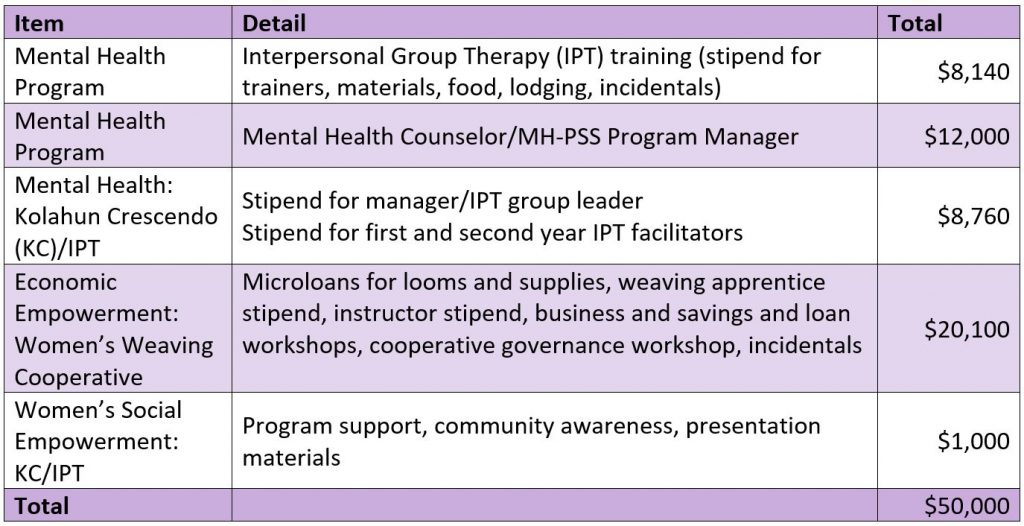
Why We Love This Project/Organization
By providing a unique model of Interpersonal Group Therapy, RESTORE HOPE: LIBERIA is truly bringing hope and renewal to communities experiencing trauma. The model is simple, effective, and appropriate in resource-poor settings. The integration of activities that are culturally familiar, with therapeutic interventions which are culturally new, offer the women opportunities for working towards a better tomorrow.
Evidence of Success
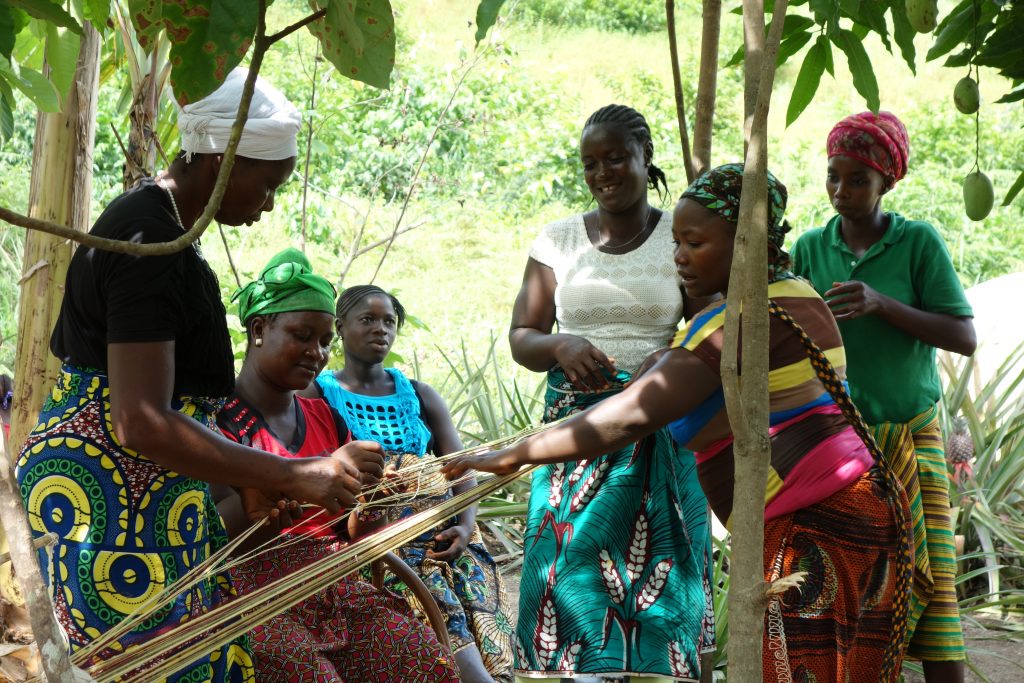 RHL’s Beneficiaries are:
RHL’s Beneficiaries are:
- – Vulnerable children/youth, ages 0-19. The vulnerability criteria include orphans (22 percent), single parent households (45 percent), Ebola survivors (3 percent), chronically ill or disabled (3 percent), or surviving parent or guardian is chronically ill or disabled (20 percent).
- – The caregivers and households of the children enrolled, a majority of whom are women and girls.
All children enrolled in RHL are fully vaccinated, sleep under bed nets, are visited at home by a registered nurse every three months, and eat at least two meals a day. The picture in the rest of country is dramatically different: one in 10 children die before their fifth birthday due to preventable and treatable disease, a third of children under five are stunted, and 6 percent are acutely malnourished.
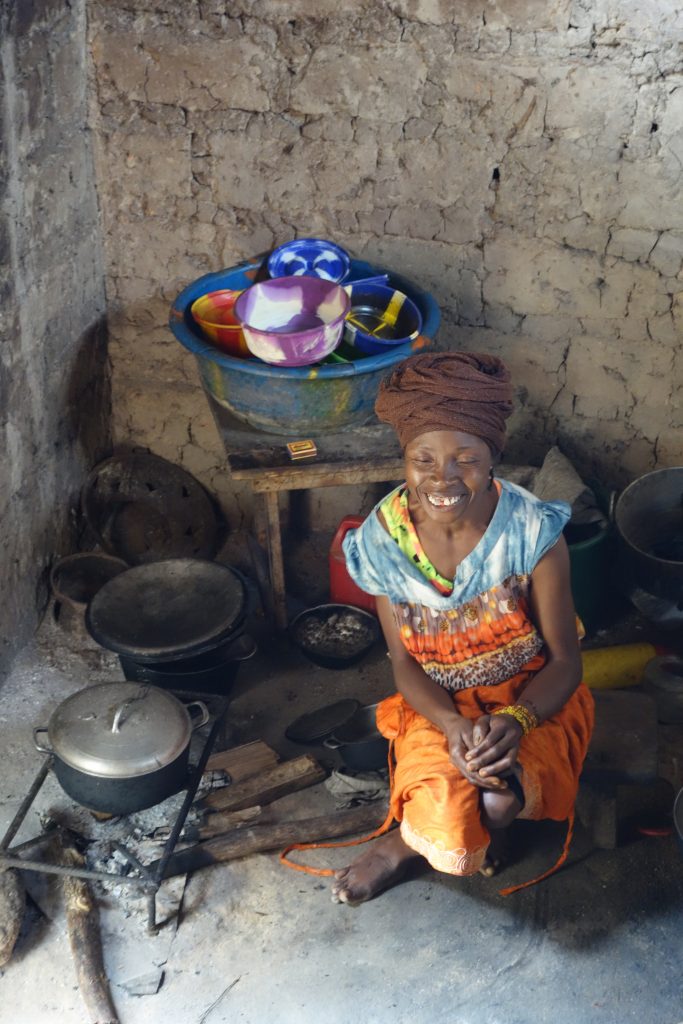 All able, school-aged children in the program attend school regularly and roughly two-thirds attend after-school tutorial sessions regularly. Nationwide, most students in Liberia never complete primary school, with an even higher percentage for girls. Only 44 percent of primary-school aged girls are enrolled in school, dropping to merely 14 percent of secondary-school aged girls/teenagers enrolled. RHL’s tutors are teaching phonics and focusing particularly on reading skills, combating the nationwide illiteracy, where only 34 percent of women are literate. The Acting Paramount Chief in Kolahun District has said, “RESTORE HOPE is one of the greatest humanitarian organizations to have come to our area… RESTORE HOPE has changed the lives of most of our citizens from bad to good.”
All able, school-aged children in the program attend school regularly and roughly two-thirds attend after-school tutorial sessions regularly. Nationwide, most students in Liberia never complete primary school, with an even higher percentage for girls. Only 44 percent of primary-school aged girls are enrolled in school, dropping to merely 14 percent of secondary-school aged girls/teenagers enrolled. RHL’s tutors are teaching phonics and focusing particularly on reading skills, combating the nationwide illiteracy, where only 34 percent of women are literate. The Acting Paramount Chief in Kolahun District has said, “RESTORE HOPE is one of the greatest humanitarian organizations to have come to our area… RESTORE HOPE has changed the lives of most of our citizens from bad to good.”
Voices of the Girls
“I live in Kolahun District. I have 3 living children…But during the war, when we were in the camp, that the time I born them. But their father left me with the children. Nobody to help me support them. But when we came back from Guinea, we came back to Liberia, RESTORE HOPE: LIBERIA came and helps me…I thank God for them; again they help me learn how to weave because the time we came for us to get food to eat, it was not easy on me. As one person, I use to go to work they give me money. I used to come and buy food, it could not be plenty for me them to send them to school, because the food money could not fit to buy food and send them to school. It was hard on me. I thank God for RESTORE HOPE: LIBERIA they have finally come; my children are going to school. Again, I am able to learn how to fix country cloth on my own under the RESTORE HOPE: LIBERIA. The time I used to lay down in the night, if RESTORE HOPE: LIBERIA was not going to come here for me to sleep, it used to be hard because the worry was too much for me, so now I thank God for my life.” 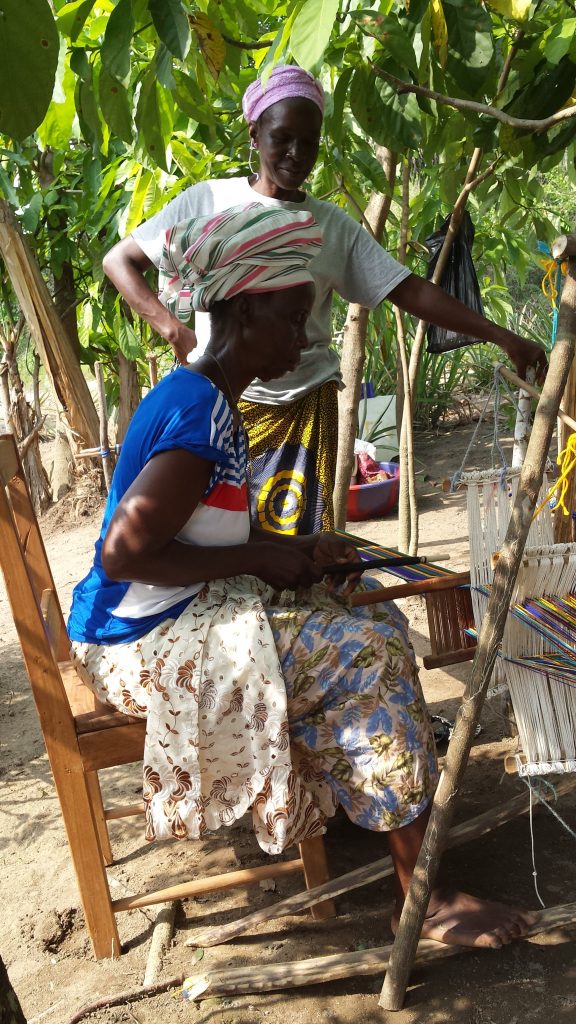
- Yassah
“I who sitting down here I single mother. Me and my husband we born six children …he leave it me and run away…but I tell God thank for RESTORE HOPE: LIBERIA. They bring weaving program, I go put my name; we made that weaving, we graduate. So that it I living on, went I plat that country cloths I go sell it, anyone that I get for profit is what me and children we can eat. But I done have nobody to help me. The way I used to be sitting down thinking, sometime I go to hospital they say my pressure up, this time I tell God thank you. Went me and my friends them meet to RHL to plat that cloth, the way me and them can joke together I can think like that. So, I tell RHL thank you thank for that good work they do for me.”
- Korpo
“When I came here it helped me. I can go among my friends now…since RESTORE HOPE came to Kolahun and started doing some counseling, I can go among my friends. To talk among my friends. Since then, other friends I’ve been counseling them and sharing my story with them. When I worried too much, my children suffered. RESTORE HOPE care for me. Since the man had his turn with me, he abandoned me and the children. The time the war started, the first pregnancy were twins, one died, the second one is still birth, the I had third pregnancy and then a fourth. My fifth pregnancy was triplets, when I gave birth I gave birth in the bush. The same day I gave birth, the rebels raped me, I wasn’t able to run away. I hide the children. After the man raped me, I ran away into the bush. Since RESTORE HOPE came, they sent for me in the bush. Now I can weave for myself. I am free in my body. I can be happy.
- Mbowelee
About the Organization
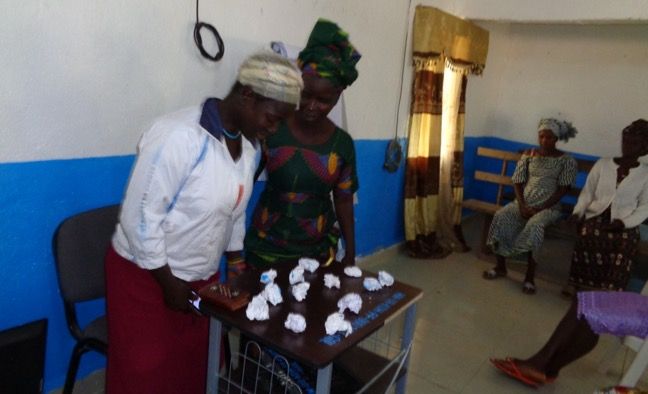 In 2015, in the wake of the worst Ebola outbreak in history, a small group of professional global health colleagues who had worked together at various times across Africa sought to develop a new model of post-emergency humanitarian aid that would address the shortcomings of the standard humanitarian response.
In 2015, in the wake of the worst Ebola outbreak in history, a small group of professional global health colleagues who had worked together at various times across Africa sought to develop a new model of post-emergency humanitarian aid that would address the shortcomings of the standard humanitarian response.
These four colleagues (Dr. Barbara Burke, Dr. David Okiror, Dr. Robert Rufsvold, and Saundra Williams) collaborated with several Liberian counterparts and piloted the RESTORE HOPE: LIBERIA program in the Kolahun District, in which three of the four founders had worked. During the first three years of the program’s operation, RHL partnered with a not-for-profit organization established in Liberia to implement the program. In 2018, RHL chose to become an independent, registered non-profit in Liberia in order to expand the program and create opportunities for future growth.
Where They Work
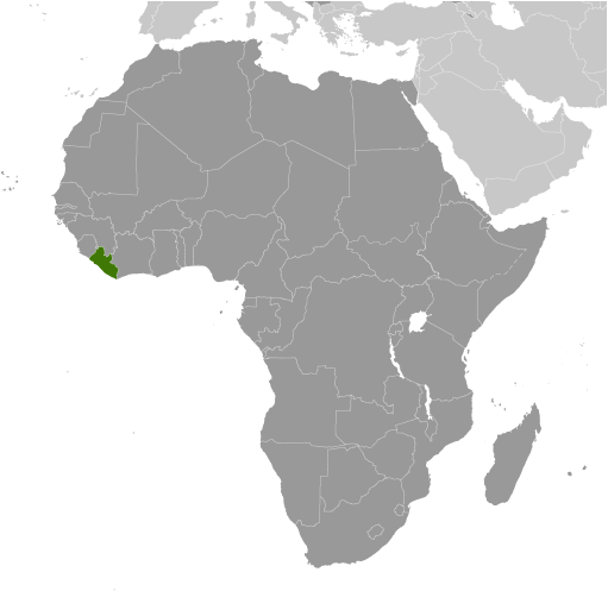
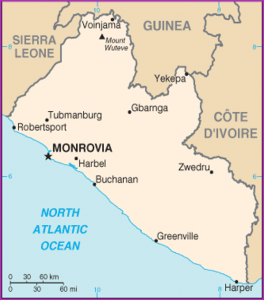
Liberia is in Western Africa, bordering the North Atlantic Ocean, between Cote d’Ivoire and Sierra Leone, and has a population is 5,073,296 (July 2020 est.).
In 2019, Liberia ranked 176 out of 189 countries on the UNDP Human Development Index. According to a 2015 World Bank report, 88 percent of Liberians were living on less than $1.25 a day. With few economic opportunities, the prospect of women’s empowerment is poor, and women face a variety of risks.
The median age in the country is 18 years. The birth rate is 37.3 births/1,000 population (2020 est.). Mother’s mean age at first birth is 19.2 (2013 est.). The country’s fertility rate is 4.9 children born/woman (2020 est.). Liberia’s literacy rate is 48.3 percent, with a male literacy rate of 62.7 percent and a female literacy rate of 34.1 percent (2017).
The maternal mortality rate is 661 deaths/100,000 live births, and the infant mortality rate is 47.4 deaths/1,000 live births. The country’s infant and child mortality have dropped nearly 70 percent since 1990. Nevertheless, Liberia’s high maternal mortality rate remains among the world’s worst. It reflects a high unmet need for family planning services, frequency of early childbearing, lack of quality obstetric care, high adolescent fertility, and a low proportion of births attended by a medical professional. Female mortality is also increased by the prevalence of female genital cutting (FGC), which is practiced by 10 of Liberia’s 16 tribes and affects more than two-thirds of women and girls.
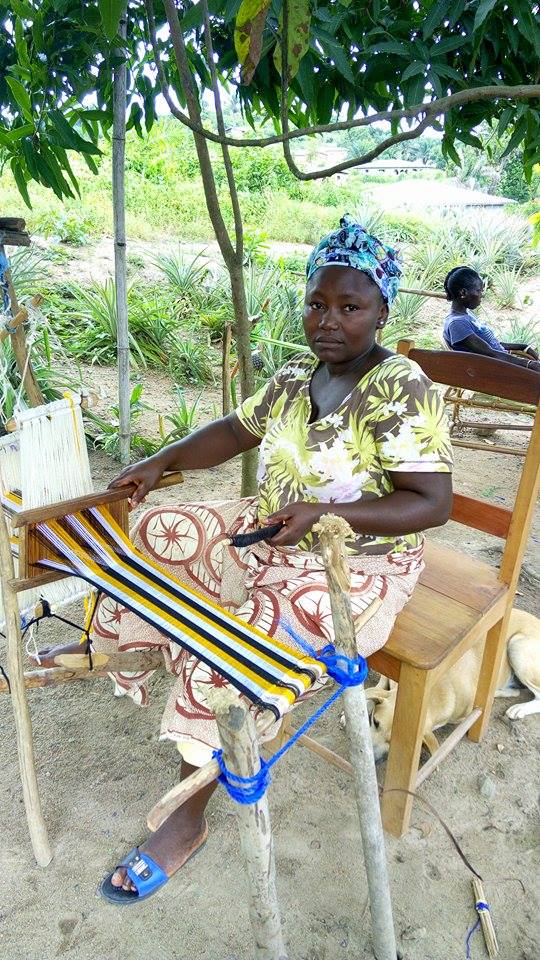 A Closer Look at RHL’s COVID-19 Response
A Closer Look at RHL’s COVID-19 Response
As one of the only humanitarian aid organizations remaining in rural Lofa county, RHL’s presence is critical in the fight for health amid the COVID-19 pandemic. The country had its first confirmed case of the virus in March 2020. By mid-May, it had more than 200 confirmed cases and 20 deaths.
RHL has continued to pay all staff, despite suspension of some activities such as the afterschool tutoring program. The organization is supporting its staff in practicing preventive measures while they continue critical work by making home visits to vulnerable children in the community. Direct cash transfers to families have been increased from $10 per month to $20 per month per household. RHL has set up support for peer-to-peer health counselors to provide prevention messaging to the community while practicing physical distancing. Children have been supported by a distribution of books so they have learning materials at home while out of school – and at the same time, children and caregivers have been provided with preventive messaging about staying safe during the pandemic.
RHL has raised funds to supply two hospitals, Kolahun District Hospital and the Foya-Borma Hospital, with essential medicine and supplies as they face a looming catastrophe. These two hospitals support a population of over 170,000. They have no ventilators, masks, or exam gloves in stock, and pharmacy shelves are virtually empty. Even basic items are needed, such as soap, hand sanitizer, bleach and other cleaning supplies, and PPE (Personal Protective Equipment) to protect hospital staff.
Source Materials
